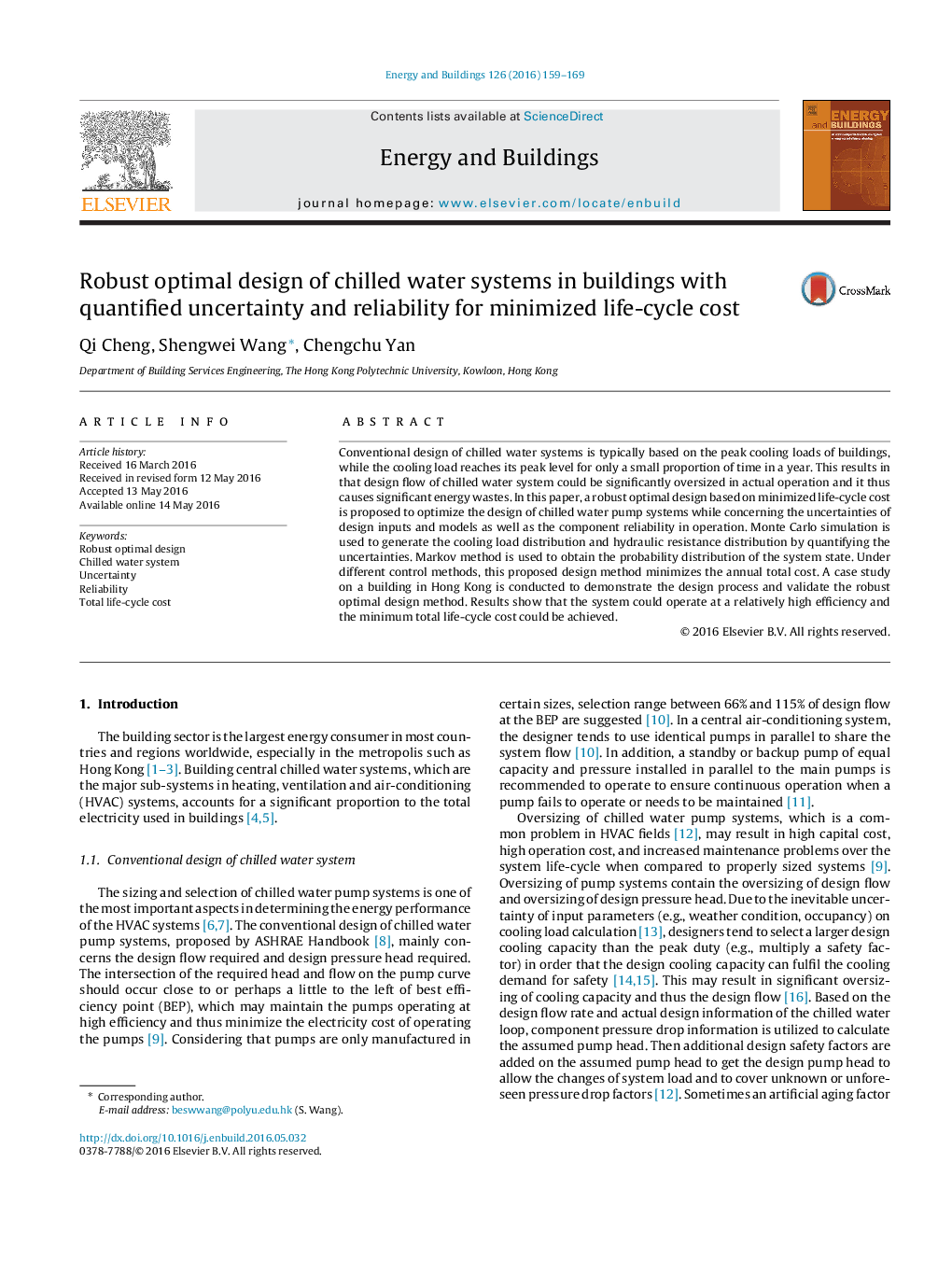| Article ID | Journal | Published Year | Pages | File Type |
|---|---|---|---|---|
| 261924 | Energy and Buildings | 2016 | 11 Pages |
•An optimization of chilled water pumps (i.e. pump head, total pump flow capacity and number/size of pumps) is developed to select the best option.•Monte Carlo simulation is used to generate the cooling load distribution and hydraulic resistance distribution by quantifying the uncertainties.•Markov method is used to obtain the probability of the system health state.•The proposed method could maintain the system operating at relatively high efficiency and achieve the minimum total life-cycle cost.•The total life-cycle cost is reduced significantly compared with conventional design and uncertainty-based design.
Conventional design of chilled water systems is typically based on the peak cooling loads of buildings, while the cooling load reaches its peak level for only a small proportion of time in a year. This results in that design flow of chilled water system could be significantly oversized in actual operation and it thus causes significant energy wastes. In this paper, a robust optimal design based on minimized life-cycle cost is proposed to optimize the design of chilled water pump systems while concerning the uncertainties of design inputs and models as well as the component reliability in operation. Monte Carlo simulation is used to generate the cooling load distribution and hydraulic resistance distribution by quantifying the uncertainties. Markov method is used to obtain the probability distribution of the system state. Under different control methods, this proposed design method minimizes the annual total cost. A case study on a building in Hong Kong is conducted to demonstrate the design process and validate the robust optimal design method. Results show that the system could operate at a relatively high efficiency and the minimum total life-cycle cost could be achieved.
